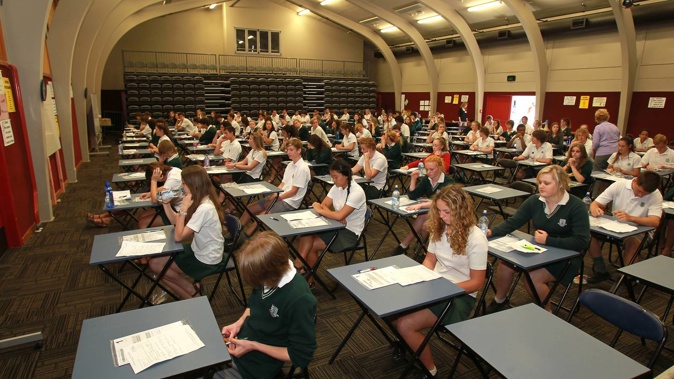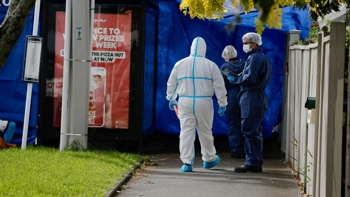
By John Gerritsen of RNZ
Some principals are shocked by their students' high failure rates in a trial run of new NCEA literacy and numeracy tests.
Year 10 students have trialed the tests, which will be compulsory in 2024.
Principals and teachers have told RNZ that all Year 10 students in at least one school failed the writing test and at others two-thirds to a half failed it.
Some also reported pass rates below 50 per cent for the numeracy test.
They said some of the schools with poor results had good NCEA pass rates and drew students from high socio-economic backgrounds who were expected to do well.
Overall results from the June trial of the online tests were expected to be published later this month but a smaller trial last year saw failure rates of two-thirds for writing and one-third for both reading and numeracy.
In the meantime, the results of individual schools have alarmed some principals and teachers because from 2024 students must pass all three assessments before they could be awarded any NCEA certificates.
Principals warned that some might never pass and others would need several attempts.
Onehunga High School principal Deidre Shea said 40 Year 10 students opted to do the trial tests at her school.
- Relief from principals about the Govt's third year of changes to NCEA
- Mike's Minute: We can't make education easier forever
She said the students felt they had done well and most had achieved the reading and numeracy assessments but the writing test "was a little harder".
/cloudfront-ap-southeast-2.images.arcpublishing.com/nzme/KZXOF2XCWCJHQA6KPY6SHU3VUU.jpg)
Onehunga High School principal Deidre Shea. Photo / Supplied
"For most students, they will be looking to achieve literacy and numeracy certainly by the end of their Year 11 year, but there are some students, and there will always be some students, for whom it will be a longer journey," she said.
Shea said teachers and students needed to accept that it was okay to attempt the tests when students were ready, rather than expecting them to pass by a particular age or year level.
She said in the long run the tests should not decrease NCEA achievement rates because schools would ensure students were better equipped to meet the new requirements.
Burnside High School deputy principal Alan Robertson said about 130 Year 10 students at the school sat the numeracy test in June.
He said the pass rate was "fairly good" but lower than the school's achievement rate for the current numeracy requirement of 10 credits in particular NCEA standards.
/cloudfront-ap-southeast-2.images.arcpublishing.com/nzme/FXRICDSE6FFSZQF2L5H24G3AWE.jpg)
Burnside High School deputy principal Alan Robertson. Photo / Supplied
"I've got the feeling that it's probably a little bit more difficult than it has been in the past," Robertson said.
He said the questions had a "reasonably high" literacy requirement, so students had to read and unpack questions.
"Overall it will probably lower the achievement rates. Perhaps not significantly. But there are some things in there that are going to be difficult just around the comprehension and the literacy," he said.
"A simple-ish sort of mathematical problem is under a few layers of a story, or a context which may involve some words which are at a reasonably high level for 14-15-year-old students. So, if they come across a context with some words in it that they are not all that familiar with then that sucks up time for them to comprehend what the question's about before they can even get to the mathematics behind it."
Robertson said the introduction of the tests in 2024 would probably stop some students from achieving NCEA certificates.
However, he said the level of maths in the test was about right.
Last year's numeracy test asked students to answer questions about distance and direction on a map, interpret a bank statement, and calculate the price of a product.
Sample writing questions included "write a script for a video to introduce your YouTube channel to new subscribers" or "write about a trip that you have been on".
Students were also asked to correct a sentence with grammar and punctuation errors or rewrite a sentence so that its meaning was clear.
Take your Radio, Podcasts and Music with you









